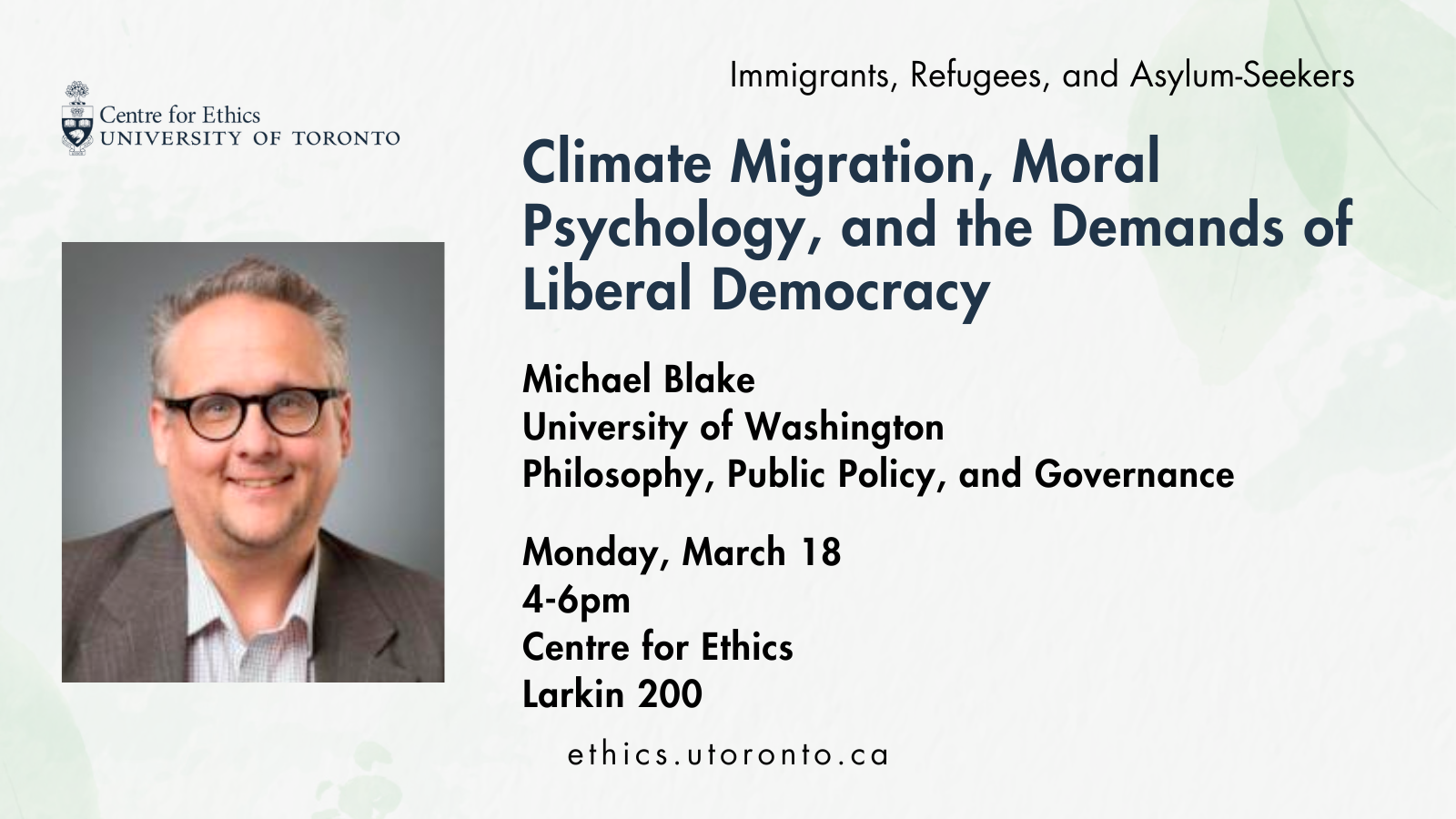
► To stay informed about other upcoming events at the Centre for Ethics, opportunities, and more, please sign up for our newsletter.
Climate Migration, Moral Psychology, and the Demands of Liberal Democracy
Many contemporary theorists of justice take climate-induced migration to be a problem of justice in distribution: the problem of how to care for those individuals displaced by climate change, that is, is best understood as a question of how to allocate responsibility for fixing a global political problem. In this paper, I want to argue that such migration entails a much more serious problem – one related to the moral motivations we take to be required by those citizens responsible for supporting and sustaining just political institutions. Liberal theory implicitly rests upon a particular view of moral psychology – about, that is, how much we can expect liberal citizens to be motivated by such moral considerations as the interests of others. There is some threshold of moral decency, we imagine, below which we imagine liberal politics becomes difficult or impossible. What moral motivations we can rightly expect, however, is at least partly an empirical question, and so makes reference to what we can expect actual people to do in response to claims of justice made by others. The claims of climate migrants, however, have two distinct aspects which make them likely to be more easily resisted. The first is that these claims are made by those with whom reciprocal political relationships have seemingly not yet been built; in contrast to the claims of fellow citizens, there is no background of mutual support here against which the claims of justice are to be evaluated. The second is that these claims emerge against a background in which the sedentary residents of wealthier states are likely to experience lower levels of wages and longevity than their parents; due to the psychological relevance of such comparative poverty, it is likely that such lowered expectations would become relevant for the perception of how much is owed to those displaced by climate migration elsewhere. It is possible to resist these two thoughts through philosophical engagement – but such engagement may not alter the motivational effects such thoughts often have. The power of bad, but attractive, ideas may be enough to lead many people to refuse to engage philosophically – a refusal which is likely to be catered to by political entrepreneurs, including populist and authoritarian anti-liberals. In the end, I suggest, one of the most significant wrongs done by the present generation to its future counterparts might be understood as the wrong of making democracy more difficult for them than it was for us; our descendants will have to demonstrate greater empathy, under worse circumstances, than we ourselves found necessary.
► this event is in person at the Centre for Ethics (Larkin building, room 200).

Michael Blake
Philosophy, Public Policy, and Governance
University of Washington
Mon, Mar 18, 2024
04:00 PM - 06:00 PM
Centre for Ethics, University of Toronto
200 Larkin
